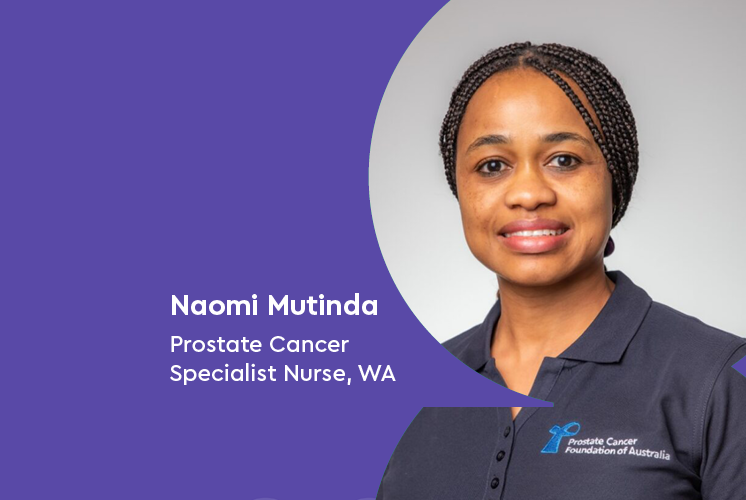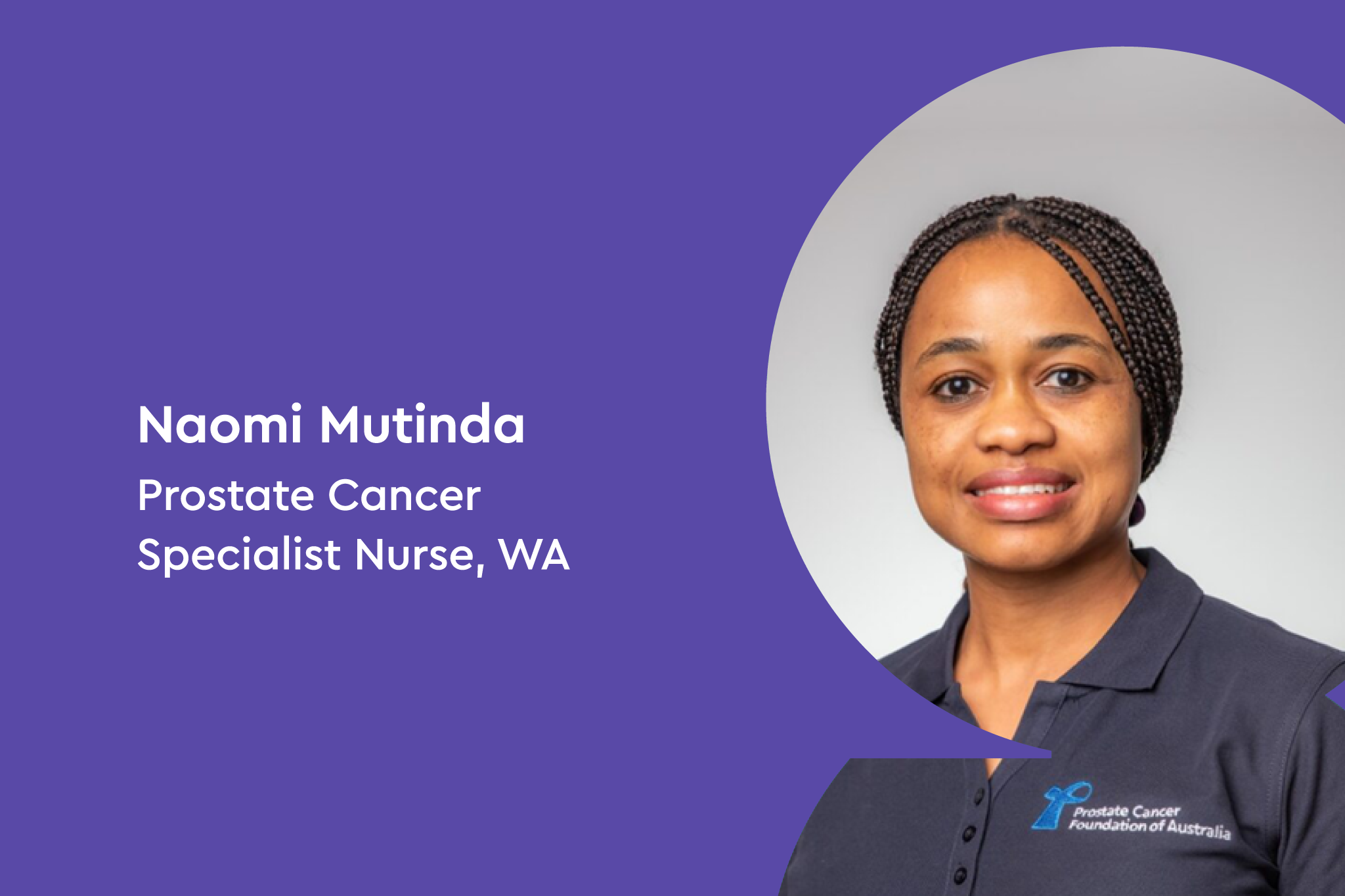In conversation with a prostate cancer nurse
We spoke with Naomi Mutinda, a registered nurse with 18 years experience who has spent the last 18 months as a prostate cancer specialist nurse.
Why prostate cancer?
"I obtained a Bachelor of Science (Nursing) at Curtin University. I’m passionate about all things men’s health and I value patient-centered care, so I spent 16 years as a surgical urology nurse at Hollywood Private Hospital before moving to become a prostate cancer specialist nurse."
What are some common questions prostate cancer patients have about treatment?
- “What prostate cancer means? This leads to a discussion of their diagnosis (staging and grading).
- Treatment options available and their efficacy - which means I can talk about all the treatment modalities for prostate cancer to help enable informed choices.
- Toxicity profile of each treatment modality and the impact each treatment will have on quality of life. This usually opens a discussion about side effects of treatment and potential impacts on quality of life.
- How do we know that the treatment has worked? I answer with a discussion of post treatment surveillance for prostate cancer.
- What happens if I get side effects? I then discuss interventions available to combat toxicities associated with prostate cancer treatment.”
Do you have any tips for navigating diagnosis and treatment?
“Because prostate cancers are mostly slow growing I tell patients to take the time to understand their treatment options and what the impact of each could have on their quality of life. [I explain potential] side effects of treatment then try and relate what that might mean in their day-to-day life. [I also recommend] speaking to other people who have been through prostate cancer and hearing their stories, while bearing in mind no prostate cancer is the same.
If they choose to google their prostate cancer diagnosis, use reliable websites like the Prostate Cancer Foundation of Australia (PCFA). [I offer a] ‘tool kit’ for reliable and peer-reviewed information.”
Do you have any tips for those who have finished treatment?
“If you experience side effects from treatment, please reach out to your treating team. There is almost always something that can be done about bothersome side effects.
Another free resource for patients is the Prostate Cancer Specialist Nursing Service available to patients Australia wide. The prostate cancer specialist nursing service is an expert point of contact and can assist with the following:
- Education and support
- Coordination of care and treatment
- Emotional and psychological support
- Connecting you with a local support group near your area
- Management of treatment side effects such as bladder, bowel, and sexual dysfunction
- Follow up after treatment for rehabilitation and ongoing care.”
You can find more information about these resources here.
What are you working on at the moment to improve patient experience?
“I am working on improving care and outcomes for patients by drawing from the experiences of patients themselves. Each appointment is an opportunity for learning and improvement. I also enjoy listening to various podcasts on men’s health and attending conferences and educational sessions on men’s health.”
Prostate cancer
Find out more about prostate cancer today.
Disclaimer
This blog is provided for information purposes only. It is not a substitute for your own healthcare professional's advice. It should not be used to diagnose, treat, cure or prevent any disease. Any medical procedure or treatment carries risks. Individual treatment outcomes and experiences will vary.


